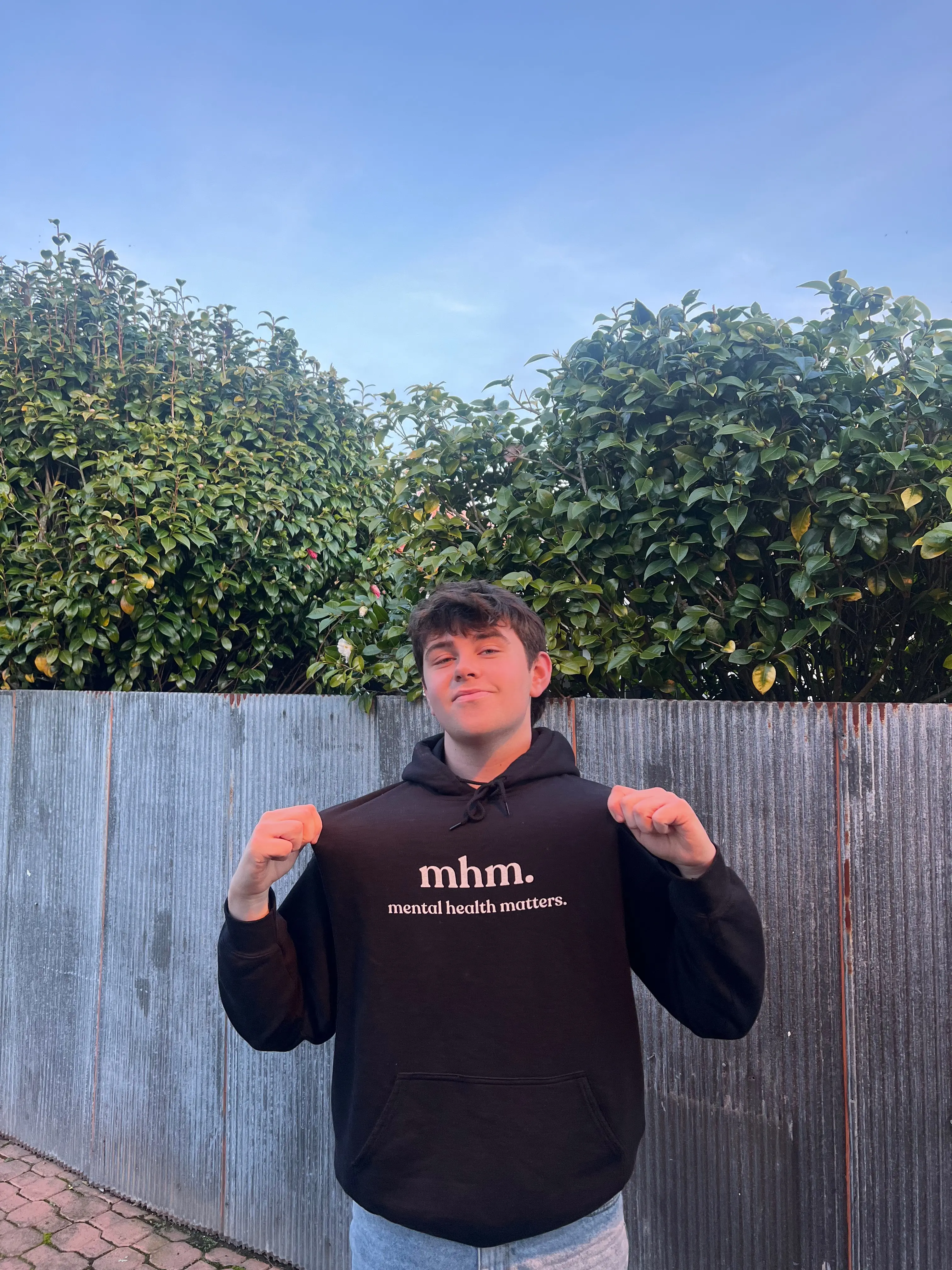Filmmakers to Watch: Day One Challenge 2025 Round Two
Meet the next wave of bold rangatahi storytellers shaping the future of Aotearoa’s screen industry. These Day One Challenge filmmakers are bringing fresh perspectives, fearless energy, and deeply personal stories to life. Dive into their creative journeys, discover what fuels their work, and be inspired by the new voices of film.
Learn more about them...
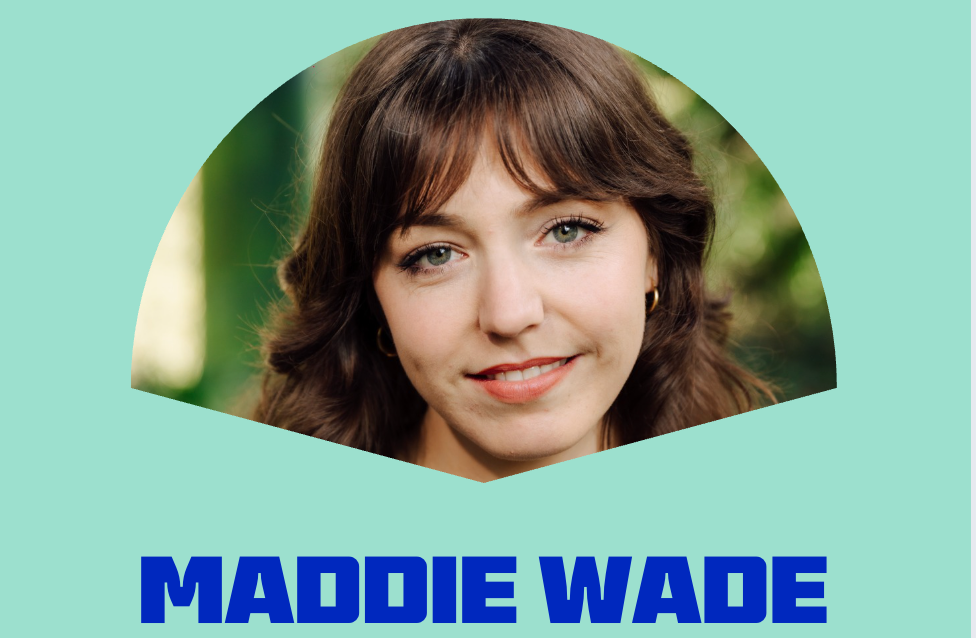
MADDIE WADE
Film: FrankenAI
Age: 24
Pronouns: She/Her
City: Tāmaki Makaurau/Auckland
Area of expertise and interest: Directing, producing, writing, acting
How & Why did you get into your area?
I grew up a dancer and quintessential musical theatre kid with terrible stage fright. But the more I put myself in those scary situations, the less scary they became. After a few times on the stage and a slightly (now) less scary audition, I trained at Toi Whakaari: NZ Drama School for three years. I got to learn about performance from industry professionals and make awesome friendships. It was there I saw how art can also be a medium for social change. This was overwhelming at first, but I let it cook over time, and now, impact messages are central to my storytelling.
I'm new to producing, but this year, I'm studying documentary directing at South Seas Film School. In documentary, you produce and direct the films you make. I wanted to deepen my skills and I came to the right place. It's a great course to get hands on experience, and I highly recommend the documentary department!
What advice/tips would you give to those who want to work in your area?
Make stuff. Good stuff and bad stuff. My first film is locked away. And it may remain that way forever. But thank goodness I made it, because I learnt about the process start to finish, what I don't like and what I do. Without failure, you can't appreciate success.
Find help in other creative people. In your life, or elsewhere. I adore books like Big Magic by Elizabeth Gilbert. It's all about creative living beyond fear. Asking for help can remind you theres always a solution to every problem. I heard somewhere life is about problems, there will always be problems, and that's a great thing. Its leading your life in the direction of the problems you truly want to solve.
Create a roadmap that leads you to the result your looking for. If you want to make a film; find a course, a competition, or an initiative for filmmakers (like Day One, 48Hours film festival), to give you a goal to work towards. Or, make something for fun. You never know where it may lead, and it's bound to lead you somewhere, which leads you somewhere, which leads you somewhere....
What motivates you to take on challenges and lead others in your filmmaking journey?
Find a story that's worth sharing.
Find a cool way to tell it.
Lead a team with the story as the guide.
What inspires your storytelling, and how do you approach bringing fresh perspectives to the screen?
Many things inspire my storytelling. Films, books, nature, people. Structure helps me bring my perspective (or someone else's) to life. One way I like to think of stories is through characters and worlds.
Characters usually have wants and needs. Worlds usually impose forces on characters. Stories usually see a character transform.
For example in FrankenAi, the character wants to make something spooky that doesn't look like Ai. The world, like our world, has rapid Ai exposure, but also a vast array of fiction that points to it. The character discovers these pointers, leading them to ask questions online and discover the environmental impact of Ai on the planet. Just the everyday heroes journey of the filmmaker!
What does collaboration mean to you, and how do you inspire those you work with?
Collaboration to me is the space between myself and another. What I bring inspires what they bring. Everyone is unique, but I find visual references super helpful when inspiring filmmakers. We like to know what we will see.
Trust in a team is important. It's key in documentary. Spending time with your team and your subjects if you don't know them well can do wonders for time onset. Then you can lock in when it's time to lock in instead of building the relationship within a pressured timeframe.
If you're stuck at any point in a creative project, don't be afraid to communicate your feelings with your close circle or your team. I often bring up creative problems with my family and close friends, and even though they are not filmmakers, I always leave the conversation feeling clearer about the next step.
What are your tips for keeping morale up during challenging moments?
At South Seas, we often say good production is in the planning. Prepare for things to go wrong, and be delighted when they go right.
Take breaks as a team when you need one. Theres nothing like 5 minutes, a mandarin and some fresh air on set to recoup the holy trinity (mind, body and spirit).
Seriously, being silly is the antidote to burnout. If things are feeling dry, have a dance. Be weird. Boost morale by leading by example. Embarrassing yourself and being ok with that is a great way to allow trust to flow.
Can you share a project or moment where you felt your creative vision truly came to life?
At the moment, I'm finalising my next short documentary project through South Seas. It's about a friend of mine who is chronically ill and sews poetry into fabric. She's a woman living creatively. In a world where medicine is limited, she can only make what her body allows her and her legendary grandmother is a prolific maker. She transforms emotions into art 'exorcisms'.
A lot of the beauty of this project I cannot claim, my subjects do so much work by simply existing. But I owe the vision coming to life by planning and my team. I asked many questions, visited spaces with my team, spent quality time with subjects and observed with a loving curiosity.
We often talk about a duty of care in documentary. The reverence is there for a reason when working with real people. They're not fictional needs, world forces or transformations. They're lived stories with weight that exist beyond the confines of a film. It's pretty special stuff. My team understood this and we collaborated by putting our subjects first. I'm very proud.
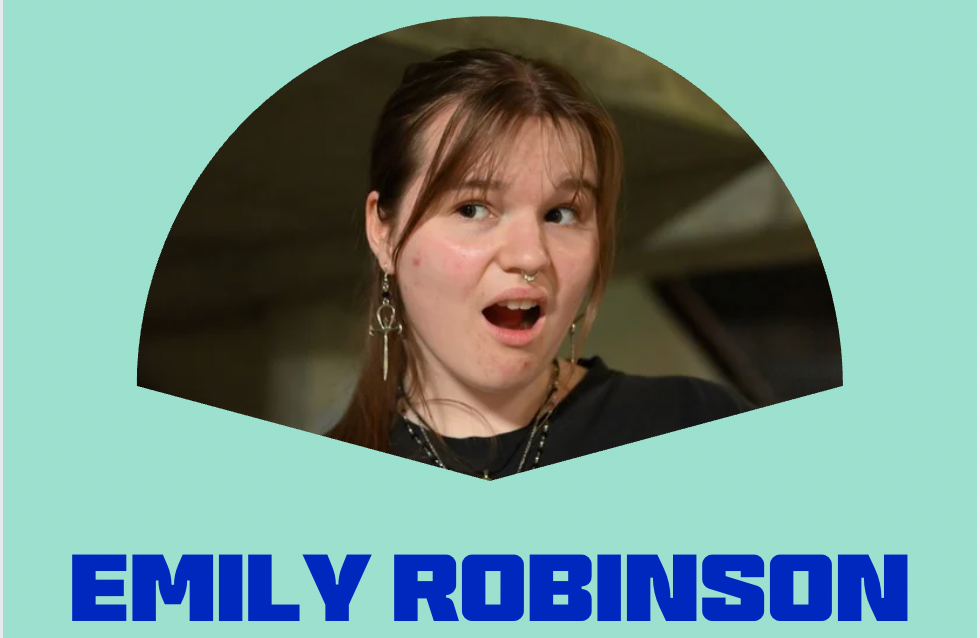
EMILY ROBINSON
Film: Face Lump
Age: 18
Pronouns: She/Her
City: Te Whanganui-a-Tara/Wellington/Fielding
Area of expertise and interest: Directing
How and why did you get into your area?
I grew up in a small rural town, where I didn't know anybody else insane enough to pursue filmmaking. So out of necessity I started directing films myself and roping in my friends into it along the way.
What advice/tips would you give to others who want to make films?
Don't worry about breaking into the "film industry" and instead make your own. Create a network of other filmmakers to collaborate with and build each other up. This way you can create work independent of any middleman boss "giving" you the permission and means to make something you already know how to make. This also means you can advocate for each other and unionise in this trade rife with exploitation. My co-producer and I are in the process of creating a Welly network like this called Bad Art.
Make a film. Do it. Do it badly. Do it weirdly. Go horribly wrong. Fail miserably. Make another one. Fail again and fail again and again until one day you don't. The film you make could be the most atrocious horrible creation ever created, and what does that make you for making it? A filmmaker. You don't need permission from nobody to make a film - all you need is a camera, a vision, and a tinge of delusion!
What motivates you to take on challenges and lead others in your filmmaking journey?
Spite.
What inspires your storytelling, and how do you approach bringing fresh perspectives to the screen?
Sometimes I get a burning itch to say something that I can't scratch with words alone. An opinion or a feeling I'm so desperate to be understood it drives me delirious. It compels me to make a film about it. I can't communicate it in any other way.
What does collaboration mean to you, and how do you inspire those you work with?
Approach collaboration horizontally. As a director, my role isn't to dictate my crew but to direct their work into a path that's in cohesion with the rest of the project. People work best when they have the freedom to express their own creativity in their role, so let them. It's gonna take a lot of trust, but it's gonna pay off.
What are your tips for keeping morale up during challenging moments?
Remembering aforementioned mutually galvanising spite.
Can you share a project or moment where you felt your creative vision truly came to life?
I gaze up into the stairwell sprawling far into the ceiling. Seven men gaze down, adorned in black clothing, clutching halved green tissues. "Make it rain men" I cry. The green tissues float down. Dollar bills. Glorious. My DOP rests wedged uncomfortably between stairwell banisters, but I stand tall above him beaming. I'm basking in the glory of my vision materialising on the set of Face Lump. It's absolute cinema.
What kind of stories do you hope to tell in the future, and what impact do you hope they’ll have?
I want to bridge into creating documentaries like The Act of Killing, Patu! and La Hora de Los Hornos. Documentary is a powerful medium for empowering resistance against state violence and repression. A camera is a gun, and I want to point it at the narratives created by capitalists to legitimise their exploitation.
What’s a specific area of your craft you’re passionate about mastering, and why does it excite you?
I'm passionate about mastering the balance between maintaining an engaging narrative while creating experimental boundary pushing cinema. I always feel a tension between creating a something subjective and personal, while also keeping it from being too confusing and pretentious. I definitely don't think I'm close to mastering either, but in a way this is what drives me to keep creating. I know I'm gonna get close one day, so I'm chasing a film inside me that I haven't realised, and this is what motivates me to keep creating them. As well as the aforementioned mutually galvanising and ambiguously directed spite.
Can you describe a moment where you contributed to elevating a project or solved a problem on set?
Not my contribution, but I distinctively remember the moment I heard the score Pari created for Face Lump, and I felt this project elevate through my screen. The music completed the entire film.
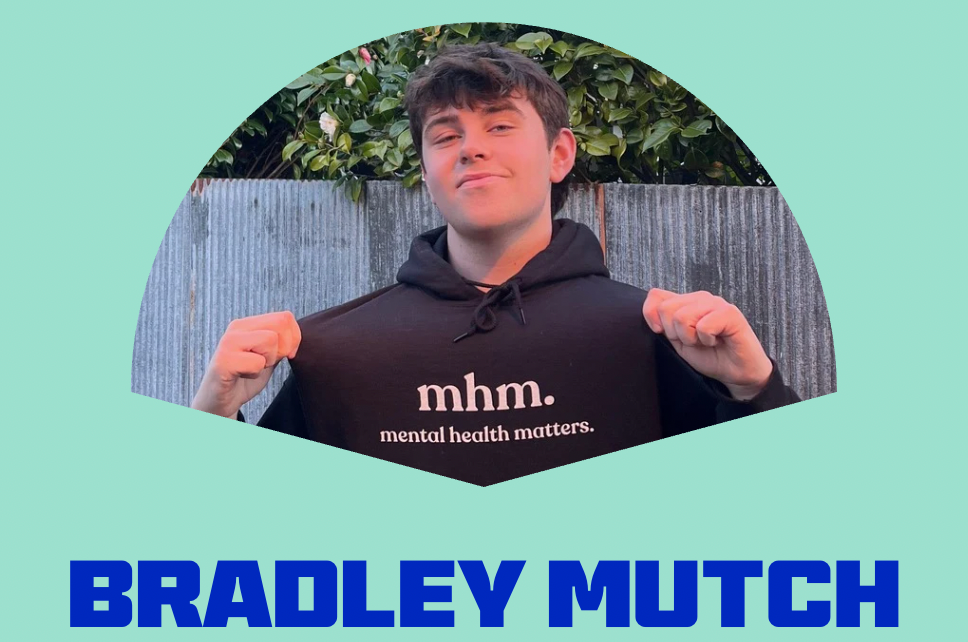
BRADLEY MUTCH
Film: mhm
Age: 19
Pronouns: He/Him
City: Ōtautahi, Christchurch
Area of expertise and interest: Directing
How & Why did you get into your area?
I’ve always had a massive interest in film as a whole and been fascinated at the concept of bringing an idea to life. I started off as an actor and then was lucky enough to be given the opportunity to direct my Year 13 production of Lord of the Flies and realised through that process that having a vision, story, and message in your head that you get to craft, as a director, and watch the vision flourish to life was exactly what I wanted to do.
What advice/tips would you give to those who want to work in your area?
Just do it. Nike it. I think for me I was always telling myself there’d be a time where I felt ready to start and then I would pursue the craft and I know that part of this was because I was worried about what others would think - planning, creating, and putting something out there for everyone to see is no mean feat - but if you have an idea for a story it is a story worth telling.
What motivates you to take on challenges and lead others in your filmmaking journey?
The learning that you gain from taking on challenges. I look at everything in life, especially in areas of filmmaking, as a learning experience, especially the challenges. I went into creating this documentary with no more than a vision and the entire thing was a learning challenge - that’s what I loved about it.
In terms of what motivates me to lead others in my filmmaking journey, I think it is more to inspire than to lead and at times I think both those words can be synonymous with each other. The whole Tuakana Teina concept, that we can all learn from each other regardless of our age and experience.
What inspires your storytelling, and how do you approach bringing fresh perspectives to the screen?
For this documentary, I had the vision of wanting to inspire others and show that, with a range of gender, age, and stories, EVERYONE has mental health. In terms of fresh perspectives, I thought putting together a SHORT documentary, to try and reduce the length and encourage more outreach and people watching the entirety of it, was the best way to achieve this. 4 humans each sharing different stories, connected through the power of both film and mental health, it was a pretty surreal thing to put together.
What are your tips for keeping morale up during challenging moments?
Remember the end goal. Remember your why. Why am I (or we) making this film? Why am I (or we) telling this story? Use that as fuel to keep you going during those more challenging moments. Every challenging moment will be worth it for the outcome.
Can you share a project or moment where you felt your creative vision truly came to life?
I remember sitting in the first interview for the ‘mhm’ documentary so beyond nervous and the moment I started asking the questions I went ‘This is it. This is something.’ The vision I had in my head was becoming a reality and the shape of the documentary itself was taking place right in front of me. Every interview after that and the editing process also felt exactly the same and there is nothing like watching the final product the first time through; from planning the vision, to executing, and then watching the reaction and response to your vision come to life is something unreal.
What kind of stories do you hope to tell in the future, and what impact do you hope they’ll have?
I want to continue to explore how mental health and film can be combined to inspire and reduce stigma as well as putting spotlight on other stories with the intent of sharing people’s experiences and highlighting the fact that everyone has a story and we are more alike than we think.
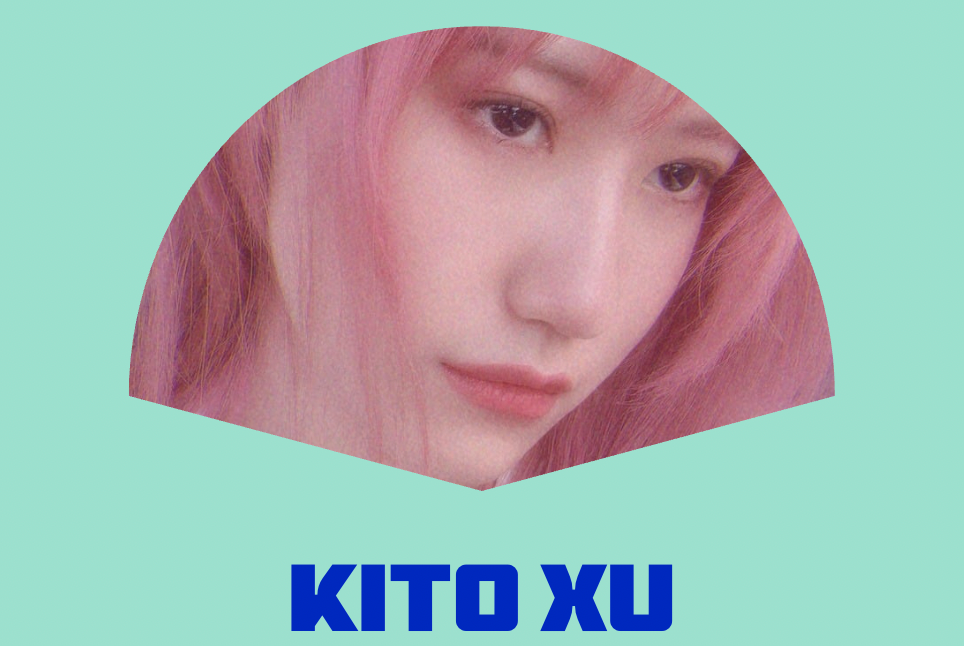
KITO XU
Film: Lost and Found
Age: 30
Pronouns: /ˈkiːtoʊ/
City: Tāmaki Makaurau/Auckland
Area of expertise and interest: I’m really passionate about Directing, but I’m also interested in roles that connect closely with storytelling and visual creation—like Assistant Director (1st AD, 2nd AD), Script Supervisor, Screenwriter, Art Director, and Director of Photography (DOP/Cinematographer). Right now, I’m still creating my own projects and trying to build up experience wherever I can. I see these different roles as both something I genuinely enjoy and as stepping stones that can help me grow and eventually achieve my long-term goal of being a director.
How & why did you get into your area?
I am now actively trying to enter the field of directing or screenwriting. I feel that I’ve always had a natural sensitivity and interest in filmmaking and self-expression, and there’s always been a voice inside me pushing me forward. I love telling stories through both words and images, and I hope to create a sense of resonance in the audience. For me, this feels like the very meaning of being alive.
What advice/tips would you give to others who want to make films?My advice for anyone who wants to make films is to just start creating with whatever you have. You don’t need perfect equipment or a big budget—the most important thing is to tell your story.
Keep learning, keep experimenting, and don’t be afraid of making mistakes, because each project is part of the journey. Make friends and collaborate with people who share the same passion—working together is not only rewarding but also one of the most enjoyable parts of the process.
And above all, stay true to your own voice. When your work is honest and comes from the heart, the audience will feel it.
What motivates you to take on challenges and lead others in your filmmaking journey?
What motivates me to take on challenges and lead others in my filmmaking journey is my deep passion for storytelling. I understand very well the kind of emotional impact that short films can bring to an audience—that inner shock that lingers long after the film ends. I hope my work can create a strong sense of resonance, helping people reflect on the meaning of life and the spiritual journey of self-growth.
At the same time, I love the collaborative nature of filmmaking. Working with people who share the same passion inspires me, and leading them toward a shared vision is both rewarding and energizing. Challenges don’t scare me; they drive me, because each one is a chance to learn, grow, and create something meaningful together.
What inspires your storytelling, and how do you approach bringing fresh perspectives to the screen?
Part of my inspiration comes from my real-life experiences, and part comes from my inner feelings, which often appear to me in the form of dreams. As one of my friends once joked, my dreams feel like I’ve got a VIP subscription—they usually have a beginning, middle, and end, like a complete, logical film.
Lost and Found was adapted directly from my own experience. A missing Apple Pencil became the trigger that pulled out all of my repressed emotions. It tore apart the mask of composure I was trying to wear and forced me to face the real pain and sense of loss inside. Acknowledging my grief and emotions, accepting them, and then letting go—that became the start of healing.
I wrote down my inner thoughts and eventually turned them into a screenplay. For me, storytelling is not just about creating a narrative—it’s about transforming private emotions into something others can connect with.
What does collaboration mean to you, and how do you inspire those you work with?
To me, collaboration means creating a space where everyone feels valued and heard. Filmmaking is such a collective art form, and the best results come when each person brings their own perspective and creativity to the project. I see collaboration as listening, respecting, and combining ideas so that the final film is richer than anything one person could achieve alone.
I try to inspire those I work with by sharing my passion and vision clearly, but also by encouraging their input and making them feel like true co-creators. When people feel trusted and supported, they naturally give their best. I also believe in leading by example—staying open, positive, and fully committed to the work—so the energy I bring can motivate the team.
What are your tips for keeping morale up during challenging moments?
My tip for keeping morale up during challenging moments is to stay calm and positive myself. As a leader, the energy I bring directly affects the team, so I try to show resilience and keep everyone focused on the bigger picture rather than the stress of the moment.
I also believe in open communication and encouragement. I remind the team of the progress we’ve already made, listen to their concerns, and make sure they feel supported. Even small acknowledgments or appreciation can lift the mood and help people push through.
Another important part is to make sure the team feels comfortable—sharing laughs, eating and drinking well together, and enjoying the process. When everyone feels connected and at ease, morale stays strong even under pressure.
And sometimes, to get the project done, in my opinion, a director has to learn to balance the desire for perfection with the need for completion—because finishing is more important than being perfect. And funnily enough, sometimes after five takes, you realize the very first one was the best.
Can you share a project or moment where you felt your creative vision truly came to life?
One project where I felt my creative vision truly came to life was my short film Lost and Found. It was inspired by my real experience of losing something small—an Apple Pencil—but that simple incident pulled out a much deeper wave of emotions I had been suppressing.
The process of turning that inner struggle into a screenplay, and then into images on screen, was very meaningful. I wanted to strip away the mask of composure and confront the pain of loss and acceptance, and I believe that came through clearly in the film. Watching it take shape from words on a page to moving images that could resonate with others was the moment I felt my creative vision had become real.
And the moment I truly felt my inspiration turning into reality was during the screen test with our actress Xiaoxue. Beforehand, I had shared with her many of my own feelings and creative intentions, and when she read the script, she already resonated with the character. The test went very smoothly, and as I watched her through the camera, I felt as if I was seeing myself. I deeply cherished that sense of human connection and resonance—it was one of the most powerful affirmations of my creative vision.
What kind of stories do you hope to tell in the future, and what impact do you hope they’ll have?
In the future, I hope to tell stories that explore youth, relationships, identity, and the emotional journeys of ordinary people. I want to capture those quiet but powerful moments that reveal how fragile and beautiful human connections can be.
I also want to create more stories that center on the inner strength of women and their emotional experiences, drawing from my own personal journey. Although some of my past relationships did not end well, they helped me become softer, more self-accepting, and stronger. I hope to transform those experiences into films that resonate with others.
At the same time, I am deeply interested in exploring Asian immigrant experiences, especially the process of adapting and integrating into New Zealand society. This comes directly from my own background and observations. I want to portray both the good and the difficult parts of this journey—the bittersweet moments—leaving space for the audience to reflect, understand, and form their own judgments.
I have already written several scripts on these themes, and I hope to find the right producers in the future to help bring them to the screen. Through these projects, my goal is to share what I have seen, felt, and experienced, and to give voice to perspectives that are often underrepresented.
What’s a specific area of your craft you’re passionate about mastering, and why does it excite you?
My true passion and strength lie in screenwriting and directing. As my close friends have often enlightened me, I find myself drawn to transforming a theme, an inspiration, a feeling, or a real event into a story with clear meaning, and then expressing it on screen. I draw inspiration from emotions in everyday life. No matter how small a feeling may seem, there is always a deeper reason behind it. By exploring and unfolding it, the emotion transforms into a beautiful canvas—first into words, flowing effortlessly onto the page, and then into images. It all comes together seamlessly, like water finding its path.
I believe themes are often hidden behind the images. Unlike writing, which makes things explicit, the screen works in a more subtle way—you don’t explain, you simply show. That quiet but powerful act of showing is what excites me the most about writing and directing.
Can you describe a moment where you contributed to elevating a project or solved a problem on set?
Sometimes my biggest contribution is not about controlling everything, but about knowing when to hold back. For me, “leaving blank” is an important part of filmmaking. It’s not just about trusting the team, but about trusting that everyone who reads the script will bring their own understanding and emotional resonance to it. The final film isn’t only the version in my head—it’s the result of all these perspectives coming together. By leaving space, I allow actors, crew, and even the audience to bring themselves into the story. That shared connection is what elevates the project beyond what I could ever create alone. After all, everyone carries their own version of Hamlet in their hearts.
And if you ask me what practical contribution I made on set—well, honestly, it was making sure my cat Gavin, who was one of the key characters, appeared in the right place at the right time. In Lost and Found, every single shot with Gavin was a perfect one-take. Maybe we had some kind of telepathic connection, or maybe he’s just a natural-born actor. I won’t reveal the secret of how to direct a cat, but let’s just say he made life a lot easier for the crew!
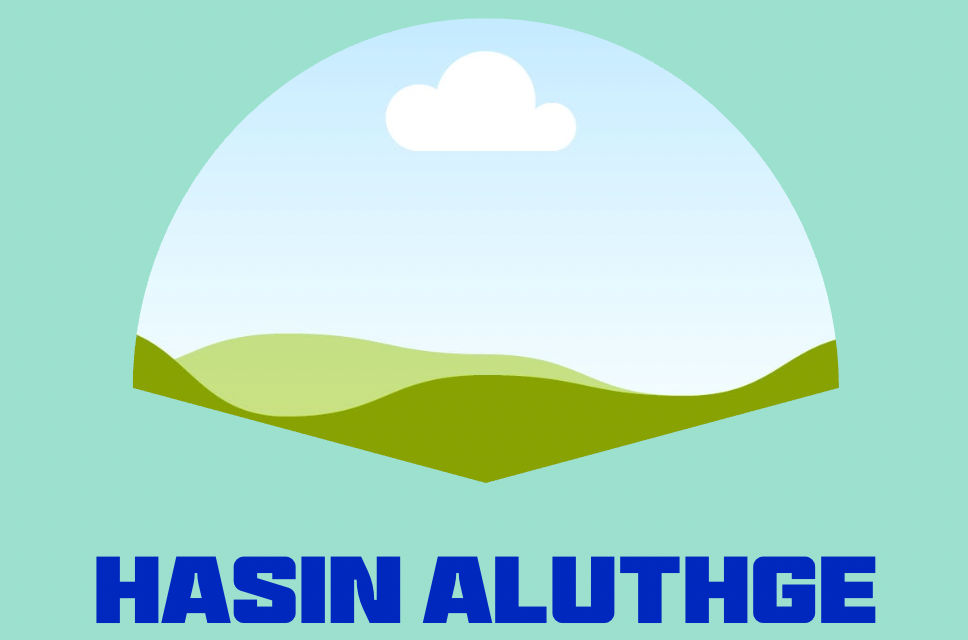
HASIN ALUTHGE
Film: FrankenAI
Age: 18
Pronouns: He/Him
City: Tāmaki Makaurau/Auckland
Area of Expertise and Interest: Camera
How & why did you get into your area?
I enjoy creating sick stuff
What advice/tips would you give to those who want to work in your area?
Just do it
What motivates you to take on challenges and lead others in your filmmaking journey?
It’s all worth it when you get to see that final product
What inspires your storytelling, and how do you approach bringing fresh perspectives to the screen?
Being different and true to your self.
What does collaboration mean to you, and how do you inspire those you work with?
Creating something that we can all be proud of it’s important to hear everyone’s ideas even if they aren’t in your department. People are so cool!
What are your tips for keeping morale up during challenging moments?
Wrap parties!
Can you share a project or moment where you felt your creative vision truly came to life?
My independent film / video called jaffa’s it’s about me and my group of friend out of Auckland being jaffas
What kind of stories do you hope to tell in the future, and what impact do you hope they’ll have?
Really don’t know what I’ll be doing going in to the future but impact wise I hope it’s big.
What’s a specific area of your craft you’re passionate about mastering, and why does it excite you?
Just super cool visual aspects colours and post production
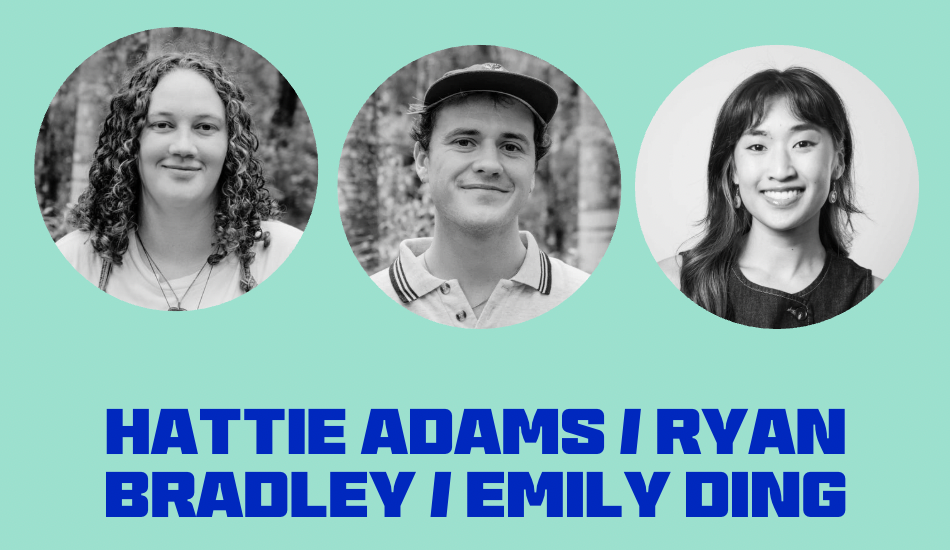
HATTIE ADAMS / RYAN BRADLEY / EMILY DING
Film: SUNPHASE
Age: 25-26
Pronouns: Hattie Adams - She/Her, Ryan Bradley, He/Him, Emily Ding, She/Her
City: Tāmaki Makaurau/Auckland
Area of Expertise and Interest: Producing, Directing, Choreography
How & why did you get into your area?
Hattie and Ryan trained together at Broadcasting School in Christchurch. We found that we have similar working styles and shared belief in the filmmaking process. In our spare time, we would develop music videos and short films to apply what we were learning in the industry into our own projects. We started Two Four Lake Films as a place to house our portfolio and somewhere to continue creating together.
Dance and movement have always been of interest to us, and as we started to gain experience in the industry, we naturally felt like exploring the dance genre in the film space.
Our next step was to bring in Emily, who has been dancing with Ryan since they went to school together at Glendowie College. All three of us have been collaborating on dance projects ever since.
What inspires your storytelling, and how do you approach bringing fresh perspectives to the screen?
When we started Two Four Lake Films we had a lot of discussions around the kaupapa of the company and the content that we wanted to create. We wanted to make sure that the projects we took on excited us but also that they were our story to tell. A focus for us is working with māori stories, female artists and queer themes. Whether that be through dance films or scripted shorts, our aim is to uplift local talent and highlight areas that are often under-represented. Creativity flows naturally when it comes from a place that is personal and real and that we want the films that we make to have an authentic and personal vibe.
What does collaboration mean to you, and how do you inspire those you work with?
Collaboration is incredibly fundamental to us. Meeting in high school and university environments have allowed us to understand what working in bad collaborations, and good collaborations look like.
We aim to lead by example in making sure our own dynamics are healthy, open and clear in their communication styles. We’re all friends first and foremost. The hope is that this trickles down to the crew and fellow collaborators, and creates a trusting environment that supports the creative. When everyone feels supported and heard within the team, the art is just better.
Can you share a project or moment where you felt your creative vision truly came to life?
We developed the choreography for Sun Phase over the course of a few months, but we shot all of it in a single day. We had one attempt at a beautiful golden hour sequence with legendary dancer Liv Tennet who bookends the video. At the right time, at the perfect location, all of the planning fell into place. Liv hit all of her marks, the sun bounced off of the landscape at the right angle and the image came alive. After a tiring day racing around the city, to see everything come together with such ease felt unreal.
What’s a specific area of your craft you’re passionate about mastering, and why does it excite you?
Ryan: I’d love to continue to explore the cross-section between dance and film. It’s an area that feels so rich and somehow unexplored, especially here in New Zealand where our dance talents are of such a high standard.
Emily: Coming from a POV outside of the trained filmmaking world, I’m enjoying continually learning from Ryan, Hattie, and the amazing people we’ve brought onboard along the way. From the logistical production side, to the creative direction side, my goal is to keep evolving my toolkit so the craft can connect with the vision.
Hattie: I am really enjoying working on projects in a creative role. My experience in the industry allows me to execute the logistics for any project and now I'm working on upskilling as a writer, director and creative producer. The goal is to continue to tell stories that I want to tell with my very talented friends.
Apply for the Day One Challenge
For anyone up to 29 of any experience level. You could be in to win prizes, make meaningful film industry connections and just have lots of fun. Entry is free. What have you got to lose? Apply through the link below:
Enjoy reading this list? Read more of our Filmmakers to Watch series here:
https://dofilm.co.nz/updates/filmmakers-to-watch-in-2025-part-one/
https://dofilm.co.nz/updates/filmmakers-to-watch-in-2025-part-two/
https://dofilm.co.nz/updates/filmmakers-to-watch-in-2025-part-three-/
https://dofilm.co.nz/updates/filmmakers-to-watch-day-one-challenge-edition/
